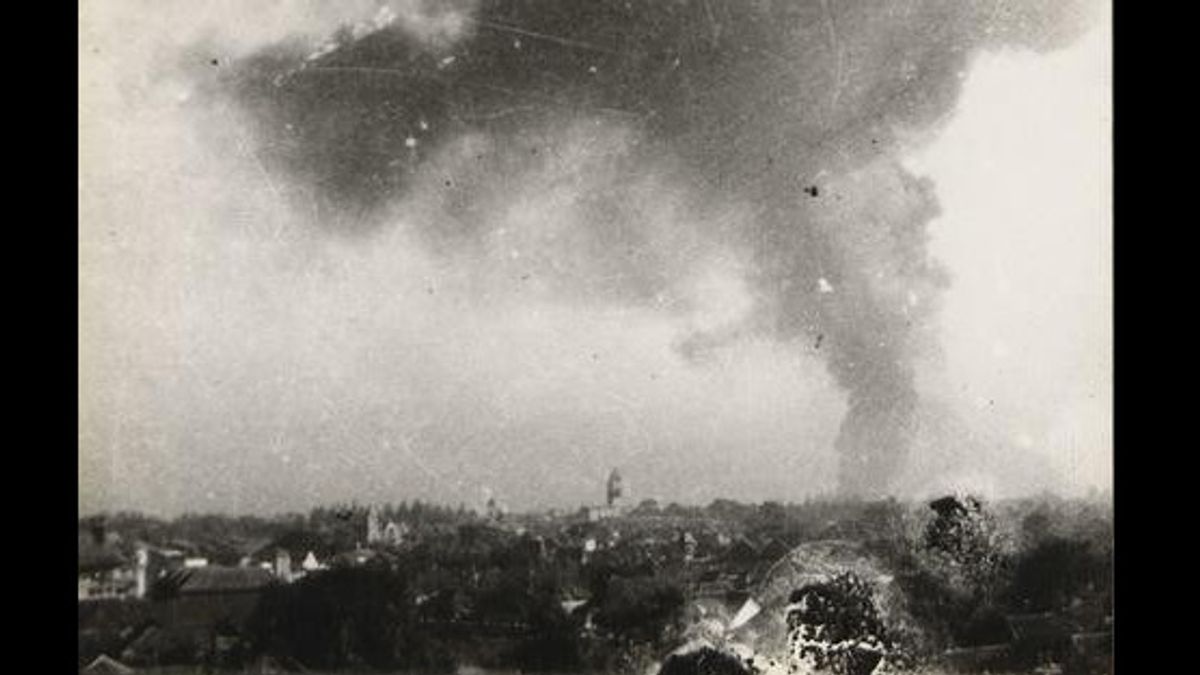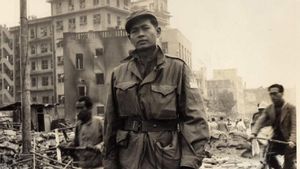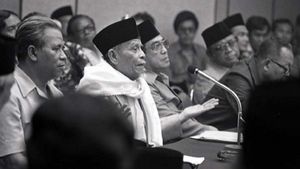JAKARTA - Earth's strategy is often used by freedom fighters during the Revolutionary War (1945-1949). This strategy is considered accurate because it can make the Dutch bite their fingers and get nothing. Even the most memorable scorched earth event is Bandung Lautan Api.
The incident was so inherent in the memory of many people. The famous musician, Ismail Marzuki, is one of them. He felt the tension of Bandung Lautan Api. Instead of just being a witness to historical events, he even recorded the incident in a song. Hello Bandung, "he said.
The Dutch passion for re-invasion of Indonesia is gone. This desire arose because the Dutch saw Japan had lost and surrendered. They then took advantage of allied forces -- Britain -- to bring in large numbers of war fleets.
In fact, the bumiputras have perpetuated the proclamation of Indonesia's independence. The assessment was carried out by the Dutch like a tactic. Coordination between high-ranking Indonesian officials is still in a maritime fashion, while the Indonesian military conditions have not been built optimally. Independence, said the natives, saddened by the Dutch word.
Every Dutch day with the banner of the Dutch East Indies Civil Government (NICA) continued to carry out terror in Jakarta, then other cities. They want the Indonesian people to see that the Dutch are the real'survivors'.
The Dutch began to slowly control various regions of the archipelago. Bandung is also included in it. The Dutch plan to control Bandung is unbearable. Moreover, the Dutch through the allied army have issued an ultimatum to the Prime Minister of Indonesia, Sutan Sjahrir.
Indonesian troops are asked to get rid of their troops from South Bandung. Indonesian troops of the Republic of Indonesia (TRI), laskar, and so on were asked to move 10-11 km from the city center no later than 24 p.m. on March 24, 1946.
Ulimatum is not beautiful. Colonel AH Nasution even refused British aid who wanted to lend a truck. Instead, the freedom fighters chose to destroy Bandung. Even though they also have to leave the city of Bandung.
This strategy is so that the Dutch cannot control the assets in the city of Bandung. Even the events will be known as Bandung Lautan Api.
In a meeting held by Nasution with TRI commanders, laskar leaders, and government officials, an agreement was reached to ground Bandung before the city was abandoned. According to the plan, the scorched earth will be carried out at 00.00 on March 24. Apparently, the scorched earth was carried out earlier at 21.00 p.m.
The first building that was detonated was the People's Bank, followed by burning in several places such as Banceuy, Cicadas, Braga, and Tegallega. Members of the TRI burned their own dormitories. The evening of March 24, 1946, not only armed forces, but also thousands of people left the city of Bandung, when the city caught fire," said Marwati Djoened Poesponegoro and friends in the book Indonesian National History Volume VI (2008).
The Bandung Lautan Api incident is not only attached to those who are at war, but also for thousands of people who have also fled. The famous Indonesian musician, Ismail Marzuki, is one of them. In fact, he previously chose to flee to Bandung because the Dutch disturbance in Jakarta was so great.
In fact, conditions in Bandung are not much different. The Betawi Kwitang child and his wife's family, Eulis Zuraida, took refuge during the Bandung Lautan Api incident. In fact, the house he lived in was grazed by a mortar. He witnessed thousands of Bumiputras displaced not as a form of defeat.
He saw the burning flames of the city of Bandung as a form of trigger for the struggle to defend Indonesian independence. As a result, the Bandung Lautan Api incident inspired him to make struggle songs.
Hello Bandung, one of them. The song then became the mars of the Indonesian people, especially the people of Bandung fought against the Dutch colonialists with NICA.
At that time in Jakarta it was not safe. Ismail immediately followed his wife who had already fled to Bandung. He only brought a few pieces of clothing. The rest, he left. When Ismail was being represented, Mr. Marzuki (Father Ismail), who was often sick. From his house on Jalan Gunung Sahari, the old man was moved to Ismail's house in Kampung Bali, Tanah Abang.
March 1946, NICA attacked an inland area. Bandung became a sea of fire. The roof of the house Ismail lived in was grazed by a mortar. Ismail and his wife fled to the village of Dayeuh Kolot and from there to the foot of Mount Patuha in Ciwidey, South Bandung. This is where Ismail created many songs of struggle. Among them is mars Hello Bandung which raises the fighting spirit," explained Ahmad Narok in the book Ketoprak Jakarta (2000).
The presence of the song Hello Bandung menggema everywhere. Ismail Marzuki's name as a musician as well as a freedom fighter surfaced throughout the country. However, the song was debated in the 1950s.
Ismail Marzuki was evacuated not the songwriter Hello Bandung. The song is considered to have been created earlier by one of the Siliwangi soldiers. Like an encouragement, the song continues to be sung during the Revolutionary War.
SEE ALSO:
There are also those who say that the song originally emerged from a song and not Ismail who wrote it. This variety of assumptions was then tried to be broken by his wife, Eulis Zuraida. He admitted that the song Hello Bandung was created by her husband inspired by the Bandung Lautan Api incident.
Eulis believed in him because he and Ismail Marzuki took part in the evacuation. Therefore, Ismail Marzuki's position as a witness to history is undeniable. He then composed the song with lyrics containing narratives of longing and burning the spirit of struggle. In fact, the song is still often heard to this day. Here are the lyrics:
Hello-halo Bandung, the capital of Periangan, Hello, Bandung City, recalls that it has been a long time since I have met you, now it has become a sea of fire. Let's fight again.
The English, Chinese, Japanese, Arabic, and French versions are automatically generated by the AI. So there may still be inaccuracies in translating, please always see Indonesian as our main language. (system supported by DigitalSiber.id)














